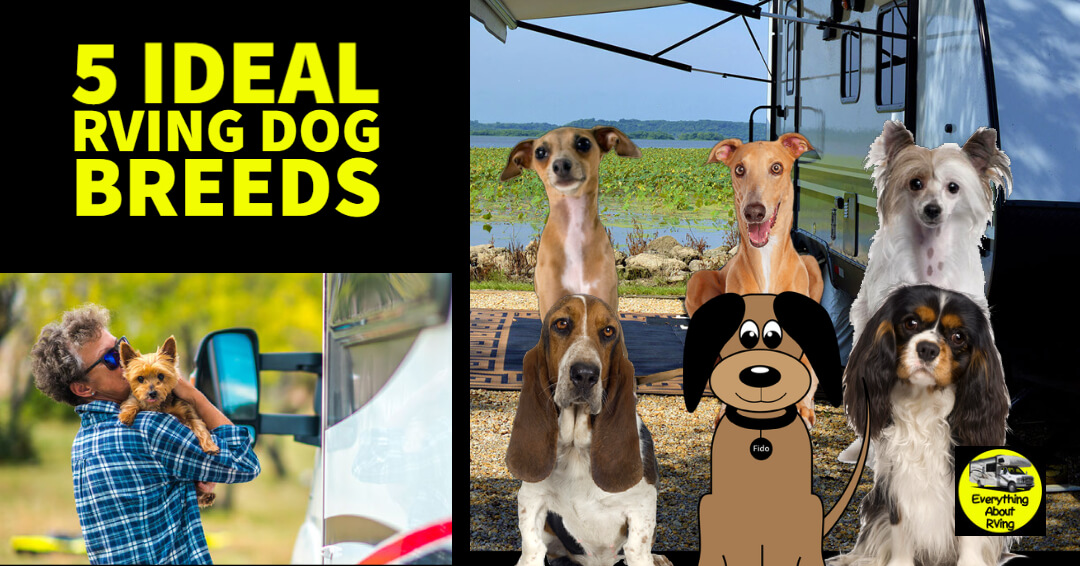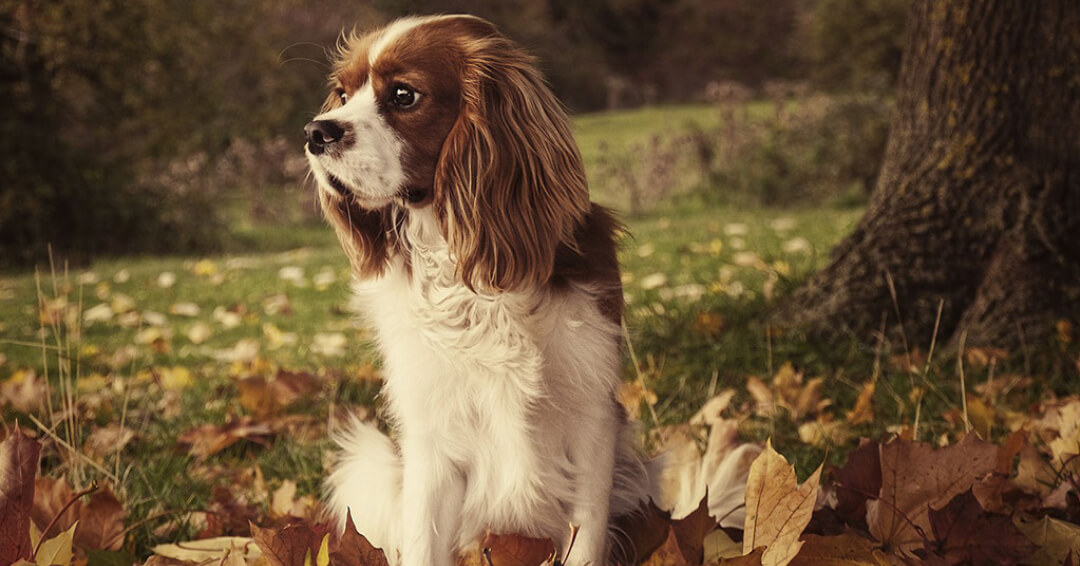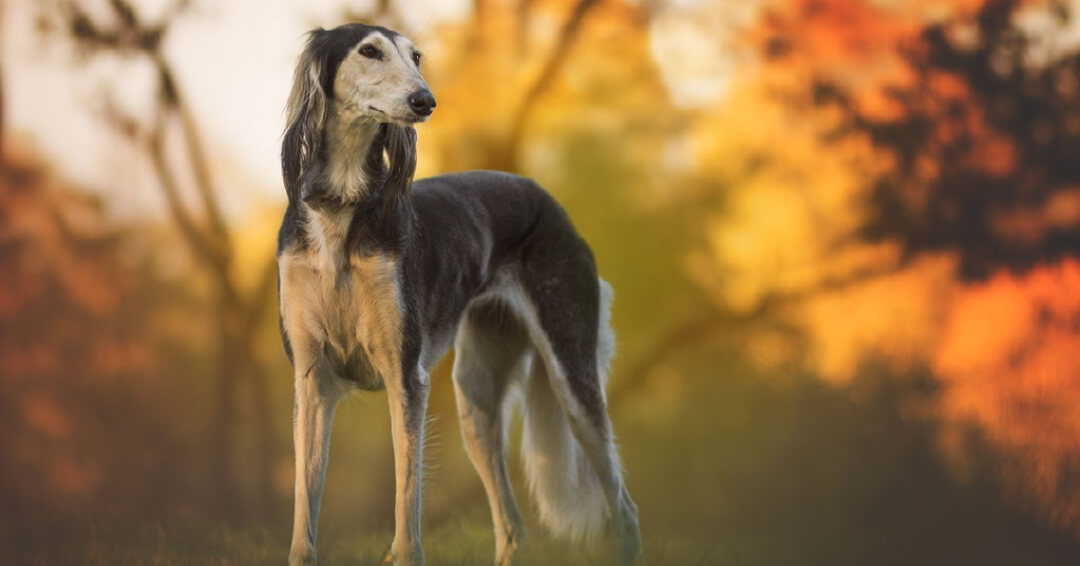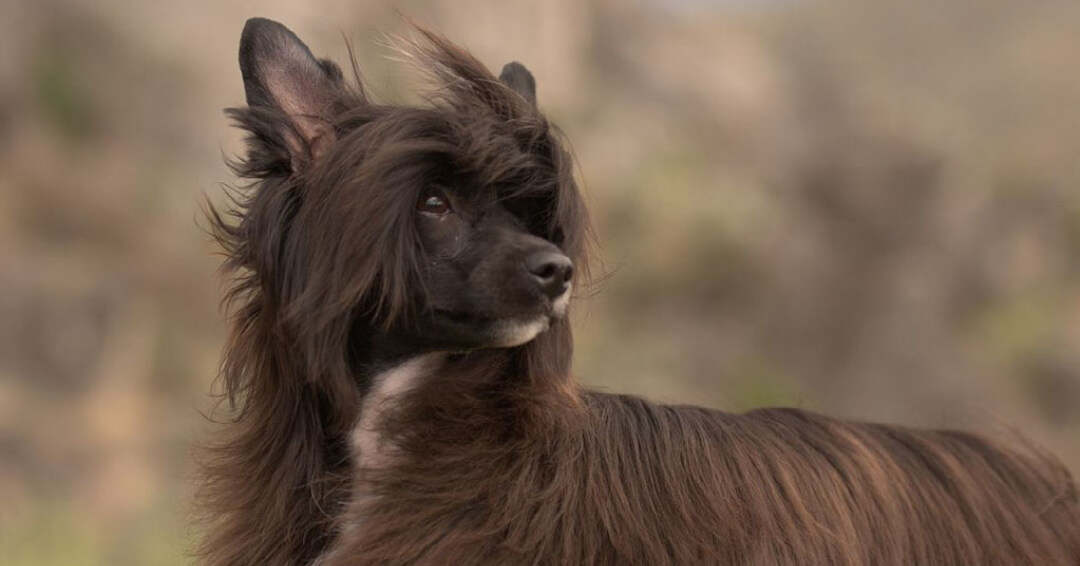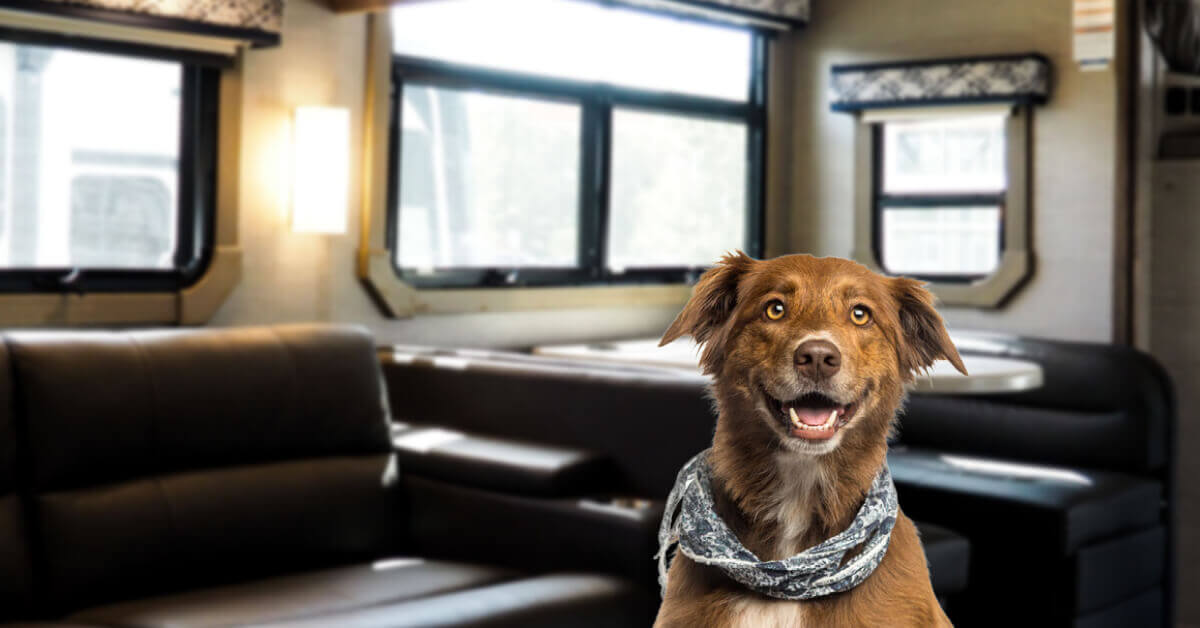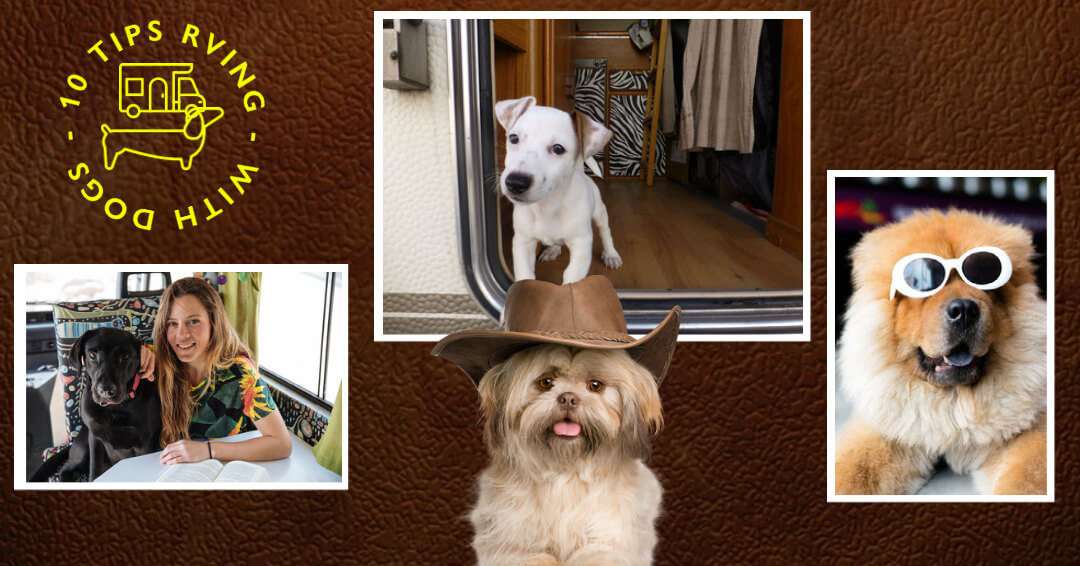- Home Page
- RVing Tips & Tricks
- Rving Dog Breeds
5 Ideal RVing Dog Breeds
Here are some suggested RVing Dog Breeds
Are you looking for the perfect canine addition to your family? If you want a dog who will do well in small places such as RVs or tiny houses, you should not simply go for any small dog breed. While some small dog breeds are perfect and calm lap dogs, you should stay away from others such as Terriers. On the other hand, some large breeds can be ideal companions for life in small spaces! Here are some suggested RVing Dog Breeds.
Let’s explore what you should look for in a dog that will do well in an RV.
Nature VS Nurture
It is a myth that it is all how you raise them when it comes to a dog’s behavior. Many dog owners struggle with problematic behavior throughout their dog’s life because they chose the wrong breed for their lifestyle. Thousands of years of domestication created over 300 dog breeds, and each one has its own individual traits, natural behavior patterns, and energy levels. Whenever you are choosing a breed, make sure that your lifestyle matches the original breed purpose of the dog you have in mind - otherwise, you set yourself and your dog up for failure.
Here are five dog breeds whose breed purpose makes them perfect candidates for living in RVs and small spaces in general:
Cavalier King Charles Spaniel
These lap dogs are perfect companion dogs that are happy in the smallest spaces. Highly social, with no aggression or reactivity known in the breed, they are ideal dogs for first-time owners and families with children. Cavalier King Charles Spaniels were initially bred in the 16th century in the United Kingdom as lapdogs for nobility and children of the royal family. They do not require a lot of exercise and are non-destructive - making them an ideal breed for the RVing life.
Greyhound
Greyhounds often have the image of a super athlete that never tires. While it is true that they can run at incredible speeds and are the fastest dog breed around, when they are not running, they are actually lazy couch potatoes. All Greyhounds are bred to run at very high speeds, but only for short amounts of time. After a morning sprint, a Greyhound will happily snooze the day away in the sun. This makes them ideal for living in RVs - you won’t see a Greyhound pacing around inside or trying to chew your furniture. Instead, they will quietly lay on their favorite bed, sleeping and dozing until your next adventure with you.
Italian Greyhound
If a full-size Greyhound is still too big for your small space, an Italian Greyhound is the perfect mini version. Docile, social, and quiet, they are wonderful companions. Italian Greyhounds are very small - weighing 5-10 pounds; they are true lap dogs. Because of its small size and low body fat percentage, this breed is prone to being chilly. If you live in a cold climate, this might not be the right dog for you. They may even refuse to go outside to potty if it is raining.
Basset Hound
The Basset Hound is the stereotypical lazy dog, and this image is not wrong! Originally bred as a scent hound for hunting hares, they mostly spend their days as couch potatoes these days. Basset Hounds not only need little exercise - their bodies cannot withstand a lot of strenuous running or jumping. They like a quick stroll, and then happily hop back onto the couch. Basset Hounds thrive in small spaces due to their love of relaxation.
Contrary to the other breeds in our list, these dogs can develop reactivity if not socialized properly. Take care to offer plenty of positive exposure to your Basset Hound during his first 12 months of life.
Chinese Crested
Chinese Cresteds are known as the “naked dogs,” however, this is only partially correct. This breed, in fact, comes in two varieties, the well-known hairless one, and the lesser-known Powderpuff version. Both types are the same in their behavior and trainability: They are generally calm, friendly, and easy-to-train since puppy age. If you live in a cold or wet climate, you should pick the Powderpuff version: this dog’s thick and woolly coat provides good protection against cooler weather. Hairless Chinese Crested can quickly become hypothermic, as they have no insulation at all.
While these dogs will happily go for walks with you, they are just as happy indoors. Non-destructive and calm, they are ideal dogs for Rvers and people that live in small spaces.
Breeds that you should not keep in small spaces
You should stay away from any dog breed that was developed to be highly athletic and requires intense exercise or that is known to be destructive. Many hunting and herding breeds, such as the German Shorthair Pointer, Border Collie, or German Shepherd, are poor choices for life in small spaces or RVs. Bully breeds are known for their strong jaws and intense chewing desire. They could damage your RV quickly if they are left unsupervised and become bored.
Again: you should always consider your chosen breed’s traits and original breed purpose when deciding if they are the right fit for your lifestyle.
The bottom line
When looking for the right dog to keep in an RV or a tiny house, lap dogs or Greyhounds are an excellent choice. These dogs are generally quiet, calm, and non-destructive. You should always do your research before committing to any dog breed. Your new canine companion will live for 10-15 years - you must make sure he/she fits your lifestyle!
If you are unsure about which breed to pick, consider fostering dogs of different breeds to better understand their behavior and traits. Many breed-specific rescues are looking for foster parents that provide a temporary home for rescue dogs. It allows you to get a peek into life with different breeds without making a commitment right away.
